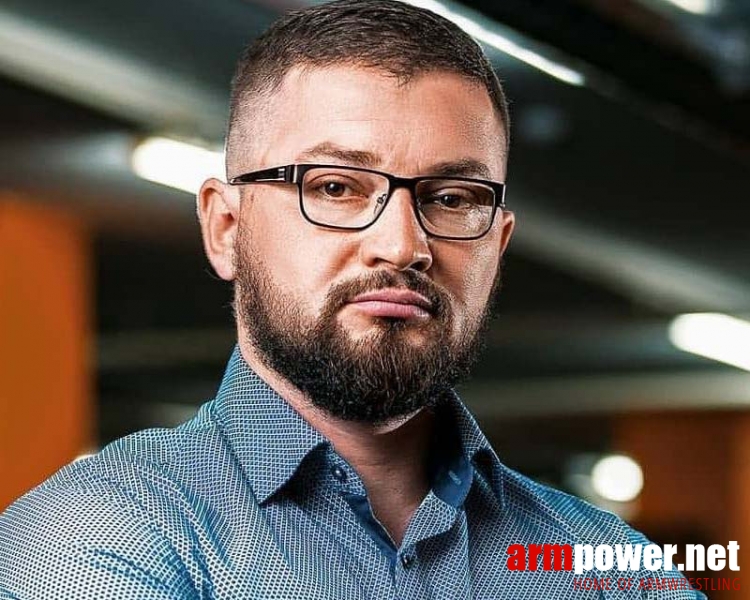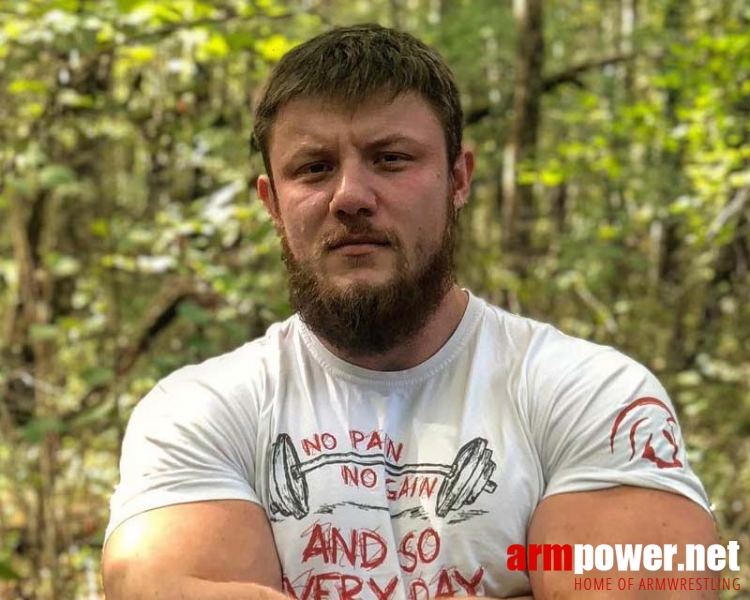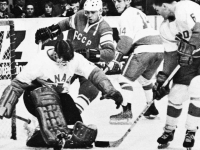I suppose you are an expert in hockey. This is my first question. A long time ago, in the 1970s, competition began between two hockey powers - the Soviet Union and the United States plus Canada. They immediately began to speak and write that the game has two “schools” - Russian and Canadian. These are two different hockey teams in the sense of team play and individual training of players. Do you think there are also two “schools” in arm wrestling? American and Russian?
Ivan Dobrorezov: I am not an expert in hockey, and I cannot even be called an amateur. But, of course, I know the story of the confrontation between the Red Machine (as our hockey team was called in the seventies) with the teams of the USA and Canada. What swings armwrestling, here everything is not so obvious. Of course, there is a Russian, or rather, a Russian school of armwrestling, which was formed on the basis of the Ossetian school. Indeed, it was the Ossetian athletes who became the first world champions from Russia. The Russian school, today, is quite multifaceted - as I said, there are ancestors, an Ossetian school, there are schools in central and southern Russia, there is a Siberian school. A little apart here is my, so to speak, Rostov school. All these “divisions” of the Russian school have differences in training, sometimes they are cardinal, but there are also main common points - such as a systematic approach, working with the younger generation, regular “graduation” of bright juniors and champions in the international arena. 
I fully admit that now my words will surprise many and there will be even more disagreements. But as for the USA and Canada - judging by the feedback of my students from America, from the results on the international stage, from videos about training American stars, I can make an unambiguous conclusion: any “school” is simply absent there.
Now I will try to clarify my point. In America there are several prominent representatives of armwrestling, we all know them well. Michael Todd, Tim Bresnan, Dave Chaffee, John Brzenk, Richard Lupkess, Todd Hutchings, Marcio Barbosa, and Canadian Devon Larratt. All these guys are certainly very strong and gifted athletes, but they train in different ways, by and large, as God puts a soul on. Training the same Todd is fundamentally different from training Larratt, or Todzilla. Chaffee generally goes his own way. But John Brzenk’s training is not known for certain. It also happens that showing bright results on their continent, some athletes from America can not show anything at international starts. For example, lightweight Jeff Hale performed less than average at the World Championships and the Zloty Tur, Barbosa did not show anything outstanding at the World Cup. And the American team at the amateur world championship shows a level literally below average. Now let's go even further. All the guys that I listed above have been performing for quite some time, and they are training someone, judging by the videos on the network. But, surprisingly, such outstanding athletes - there is not a single student who has at least achieved something internationally. Literally, not a single one. But the real indicator of the “school” is not a handful of unique genetic gifted athletes - the school is mass, these are juniors, and, most importantly, the school is the results. An indicator of a good level of school or trainer is not the education of one, even the coolest champion. A good indicator is regular, albeit slightly above average, but massive results. If applied to Russian, Ukrainian, Kazakh, Georgian realities, then the school that graduates a few winners of major tournaments, juniors, excellent speakers at the international level, and not the one that raised one champion in the history of existence, will be good. After all, it is from those junior guys that the champions later grow up. It is the same in America - I practically don’t see “fresh blood” there now, and indeed, there is nowhere to take it from, since in my opinion there are no “schools” there. While Kazakhstan, Ukraine, Russia, Georgia constantly make "fresh injections" in the world of armwrestling.
Question for you as a coach? Which of your students are you most proud of?
Ivan Dobrorezov: I am proud of absolutely all my students. Any result is important to me - my student’s victory in international tournaments and good performances in tournaments of a lower level. For me, as for a coach, the most important thing is to see determination and perseverance in my ward. Of course, I am very glad when such guys as Vadim Aleinikov, Baysangur Soltykhanov, Sergey Yevtushenko show powerful results at the World Cup among professionals. But I have no less joy, for example, from those guys who successfully perform at All-Russian tournaments, championships of Russia, Europe and the World. Among my wards there are athletes who compete in disabled categories - I always bow before their will to win.
Which sportsmen caused you the most problems before he became successful?
Ivan Dobrorezov: Probably problems are not quite the right word. I had no problems with any of my students. The biggest problem for me is to attend the competitions where my guys are fighting. I am very worried, it is easier for me emotionally to go to the table myself than to watch the students struggle. But the longest, to date, the path we have traveled with Sergei Yevtushenko. He came to me for training when he was 15 years old, now, looking at his photo, it is difficult to believe that this guy is not genetically gifted for armwrestling. It was a terrible «drisch», with a height above 180 cm, it weighed about 65 kg, had pronounced features of an ectomorph. I not only trained Sergey, but literally brought up, somewhere I replaced his father, somewhere - older brother. I escorted and met him from the army, in general, now we have 13 years of joint activity with him. He showed the first noticeable result only after 4 years of training, he became the winner of the Southern Federal District. Now he has many victories at All-Russian tournaments, the bronze award A1 RUSSIAN OPEN and the bronze award ZLOTY TUR.
Elena Kuzmych & PeSzy: Thank you for interviev
Иван ДОБРОРЕЗОВ: Thank you

